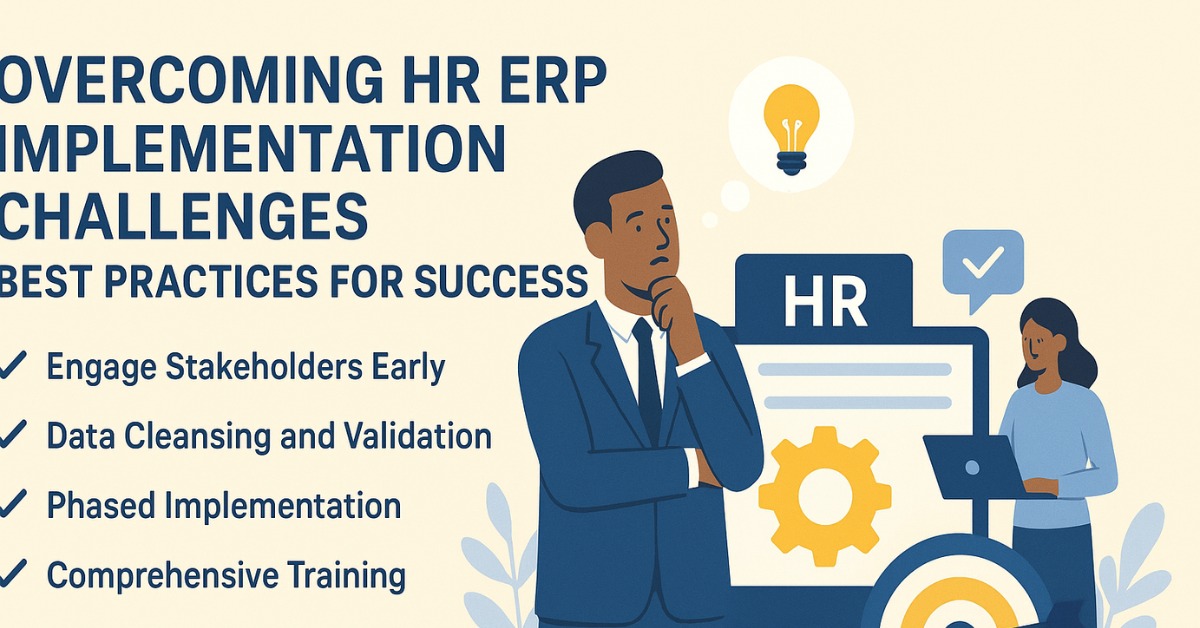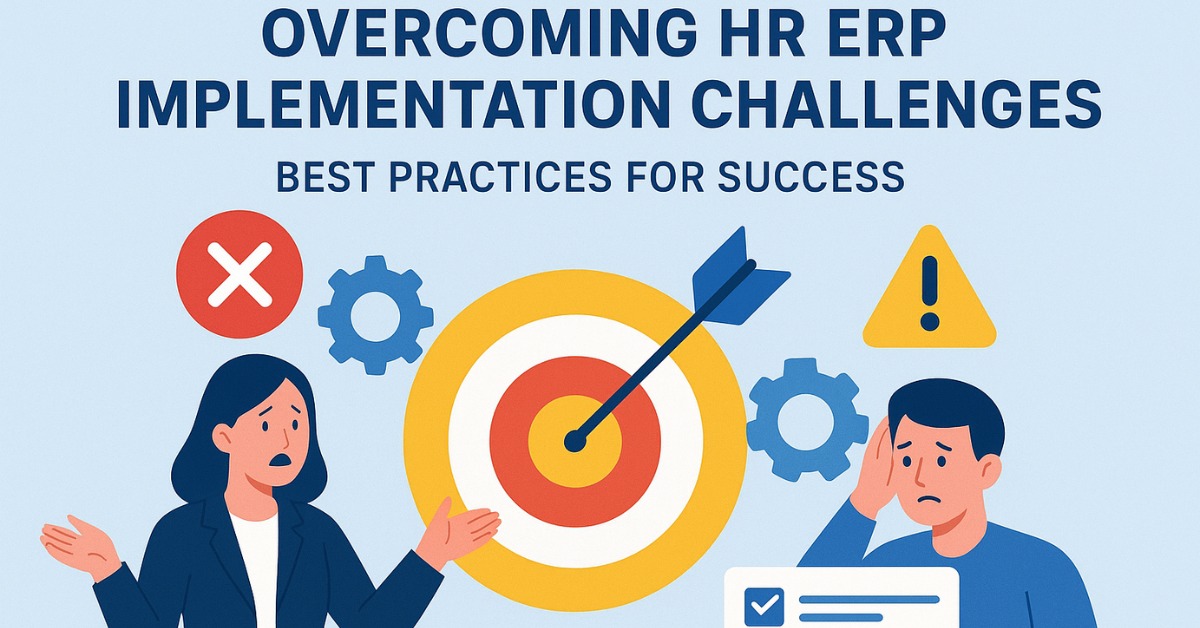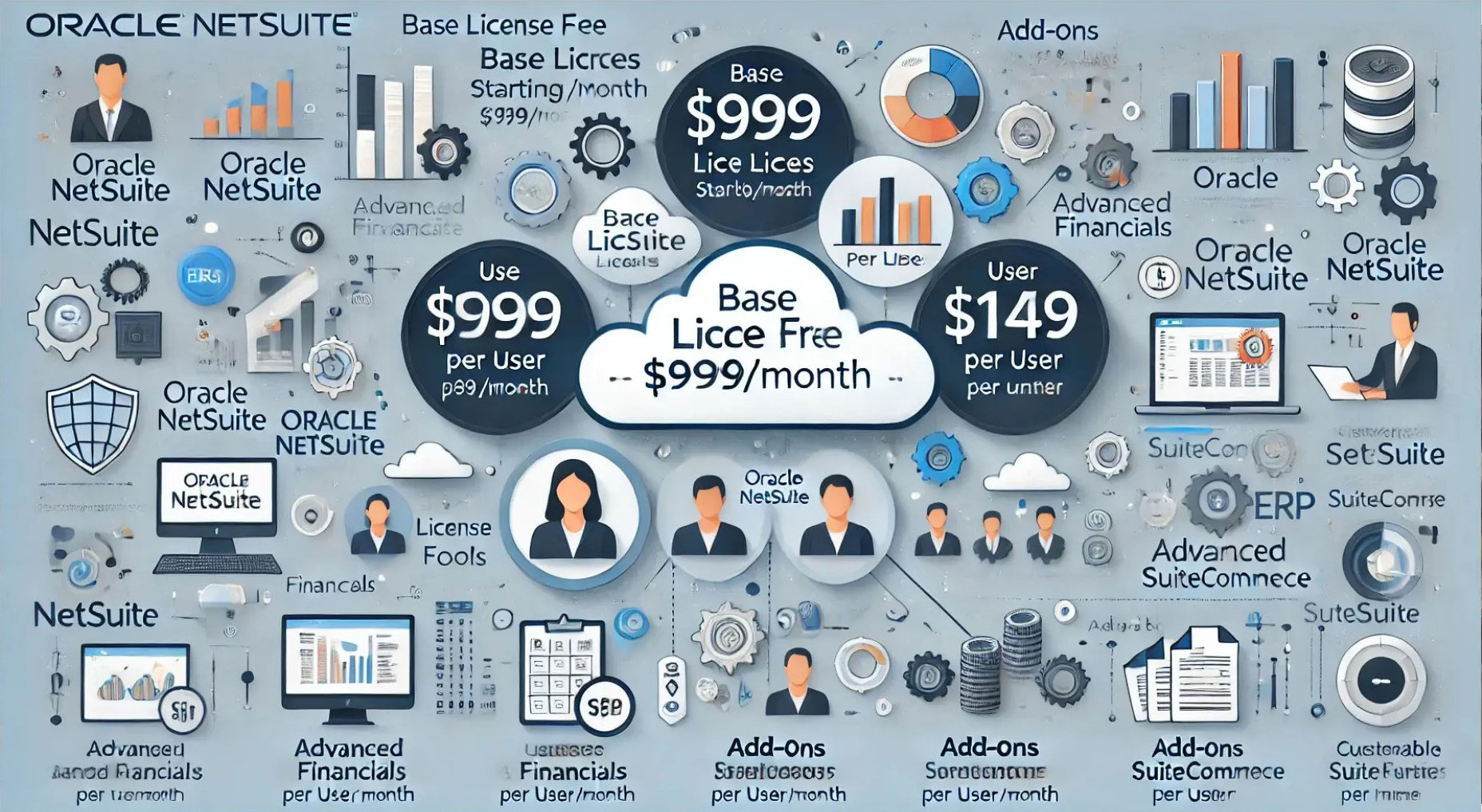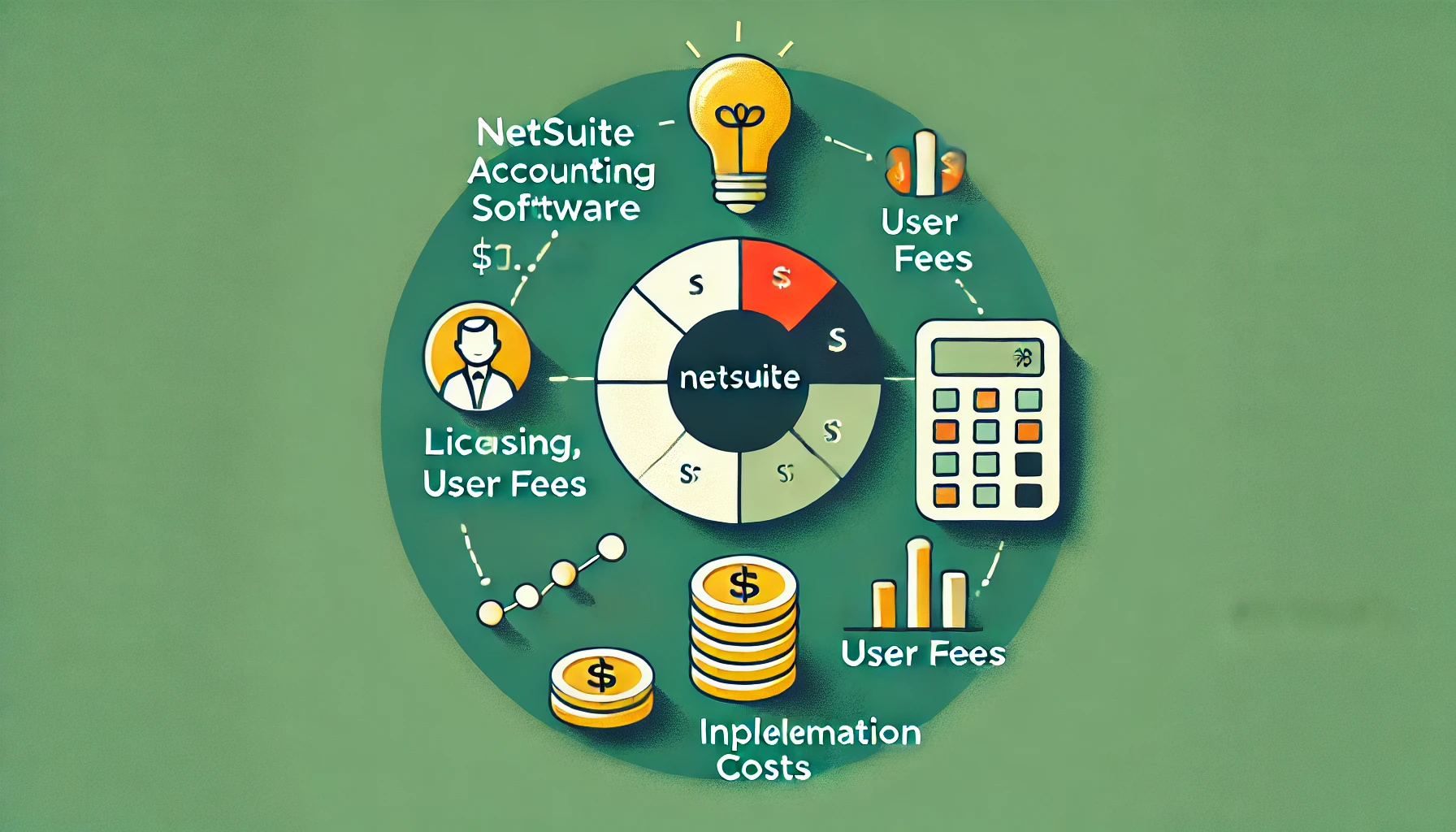HR ERP systems have become an essential tool for modern organizations, offering the ability to manage employee data, streamline HR processes, and provide insights for strategic decision-making. However, achieving HR ERP implementation success is not always straightforward. Organizations often face multiple challenges that can hinder adoption, reduce productivity, or affect employee engagement. Overcoming HR ERP implementation challenges is critical for unlocking the system’s full potential and realizing measurable benefits.
A successful HR ERP implementation ensures improved efficiency in processes such as recruitment, onboarding, payroll management, performance tracking, and employee engagement. It reduces errors, eliminates redundant manual work, and enables HR teams to focus on strategic initiatives. By understanding common challenges and adopting best practices, companies can achieve smooth HR ERP adoption and drive long-term organizational growth.
Table of Contents
ToggleCommon HR ERP Implementation Challenges
Implementing an HR ERP system involves technical, organizational, and human factors. Identifying and addressing these challenges early is critical to avoid disruptions and ensure smooth adoption.
- Resistance to Change: Employees and managers may resist new systems due to fear of disruption or unfamiliar workflows. Overcoming HR ERP implementation challenges requires clear communication, training, and involvement of staff from the early stages.
- Data Migration Issues: Migrating employee records, payroll data, and performance information accurately is a major challenge. Poor-quality data or inconsistent records can affect HR ERP implementation success.
- System Integration Complexity: HR ERP systems need to integrate with payroll, attendance, learning management, and performance systems. Integration challenges can cause delays, errors, or duplicate data entry.
- Budget and Timeline Constraints: ERP implementations are often costly and time-consuming. Without proper planning, organizations may face cost overruns or delayed timelines, reducing ROI and increasing employee frustration.
- User Adoption Problems: Even after deployment, low adoption rates among employees can prevent HR ERP systems from delivering their full value. Without proper engagement and incentives, HR ERP implementation success may remain limited.
Failing to address HR ERP implementation challenges can negatively impact not only HR operations but also overall organizational performance.
- Reduced Efficiency: HR processes such as recruitment, payroll, and leave management may become slower and more error-prone, leading to inefficiencies.
- Employee Frustration: System usability issues, lack of training, or unclear processes can frustrate employees, affecting morale and engagement.
- Data Inaccuracy: Inaccurate or inconsistent HR data can affect compliance, reporting, and workforce planning, potentially resulting in financial or legal issues.
- Strategic Opportunity Loss: Without effective HR ERP adoption, organizations cannot fully leverage data insights for talent management, succession planning, or workforce optimization.
- Increased Operational Costs: Errors, redundancies, and inefficiencies caused by poor implementation increase operational costs, reducing the overall benefit of the system.
Best Practices for Overcoming HR ERP Implementation Challenges
Adopting best practices is critical to overcoming HR ERP implementation challenges and ensuring system success.
- Engage Stakeholders Early: Include HR managers, IT staff, and end-users from the beginning. Early engagement ensures that their needs are incorporated, reducing resistance and improving system adoption.
- Thorough Data Preparation: Clean, validate, and standardize all HR data before migration. Accurate data improves reporting, decision-making, and overall HR ERP implementation success.
- Phased Implementation Approach: Deploy HR ERP modules in phases, starting with critical functions such as payroll or employee records. This minimizes disruptions and allows staff to adjust gradually.
- Comprehensive Training Programs: Provide training sessions, manuals, and online resources to ensure that employees understand system workflows and functionality. Continuous support enhances user confidence and adoption.
- Strong Change Management Plan: Communicate the benefits of the HR ERP system clearly. Address employee concerns proactively and provide incentives for active participation to overcome resistance.
- Regular Monitoring and Feedback: Monitor KPIs such as system usage, error rates, and process completion times. Encourage feedback to identify areas for improvement and ensure continuous HR ERP implementation success.

Additional Strategies for Successful HR ERP Adoption
Beyond standard practices, advanced strategies can help organizations overcome HR ERP implementation challenges more effectively.
- System Customization: Tailor the HR ERP system to match organizational policies, workflows, and compliance requirements. Customized solutions ensure better usability and higher adoption rates.
- Leverage Analytics: Use the ERP system to generate HR analytics on employee performance, engagement, and attrition. Data-driven insights support better workforce planning and strategic decisions.
- Collaborate with Vendors: Work closely with ERP vendors or consultants to navigate technical issues, integration complexities, and industry-specific requirements.
- Plan for Continuous Improvement: HR ERP implementation is not a one-time project. Regularly review processes, update modules, and incorporate user feedback to maintain system effectiveness.
- Focus on Employee Experience: Ensure that the system enhances, rather than complicates, the employee experience. Simplified interfaces, self-service portals, and mobile access increase satisfaction and engagement.
Conclusion
Overcoming HR ERP implementation challenges is vital for organizations aiming to achieve efficiency, accuracy, and strategic advantage in HR operations. By addressing resistance to change, ensuring accurate data migration, integrating systems effectively, and following best practices, organizations can unlock the full potential of HR ERP systems. A successful HR ERP implementation improves employee engagement, streamlines HR processes, reduces operational costs, and provides valuable insights for workforce planning. Organizations that proactively tackle challenges and adopt advanced strategies can transform HR operations and drive sustainable success and growth.




